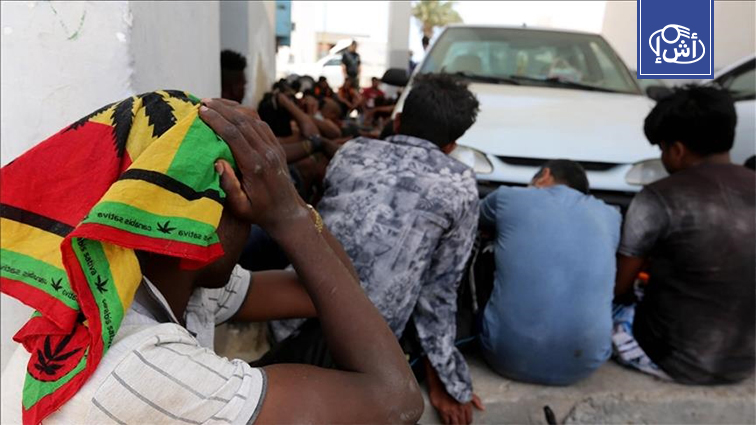On Wednesday, the Libyan Minister of the Interior, Imad Trabelsi, and his Chadian counterpart, Mohamed Mergui, signed a new agreement to settle the situation of irregular Chadian migrants in Libya.
This signing came on the sidelines of the Trans-Mediterranean Migration Forum, which was held in the Libyan capital, Tripoli, with the participation of European and African delegations.
The agreement aims, according to a statement published by the official “Our Government” platform, to identify and count Chadian migrants in Libya, and to facilitate the regularization of their status.
The agreement stipulates the provision of logistical and financial assistance to Chadians wishing to voluntarily return to their homeland, in addition to reintegration programs to facilitate their return and settlement in Chad.
The statement explained that a joint committee will be formed to follow up and evaluate the implementation of the agreement, and its meetings will be held regularly to evaluate progress and address any problems that may arise.
Abdul Hamid Al-Dbeibeh , head of the outgoing Libyan National Unity Government, chaired the presidential meeting of the forum, while Trabelsi managed the work of the meeting of participating interior ministers.
The forum was attended by European and African leaders, including the President of Chad, Mohamed Idriss Deby, the Prime Minister of Italy, Giorgia Meloni, the Prime Minister of Tunisia, Ahmed El Hachani, and the Prime Minister of Malta, Robert Abella.
In his speech during the forum, Al-Dbeibeh called on countries affected by irregular migration to develop vital and economic sectors to provide job opportunities in African countries that export migration, pointing to the challenges facing Libya as a result of the pressure of European rejection of migrants and the African desire to migrate.
It is noteworthy that Libya is a major starting point for irregular migrants fleeing war and poverty in Africa and the Middle East and seeking to reach Europe.
Evacuation of 3 Tunisians from Haiti in coordination with France
